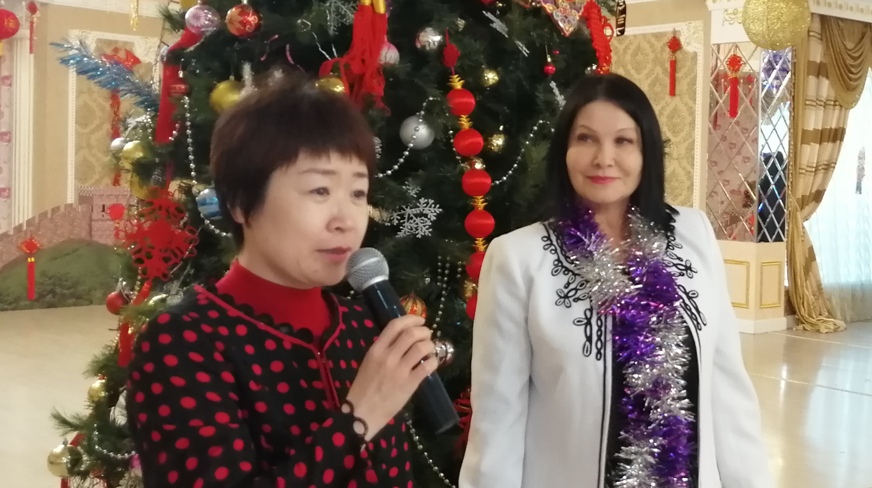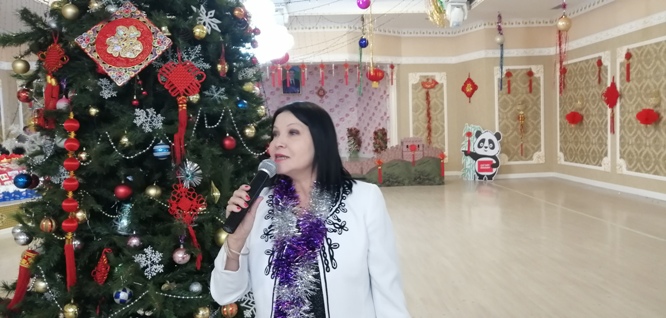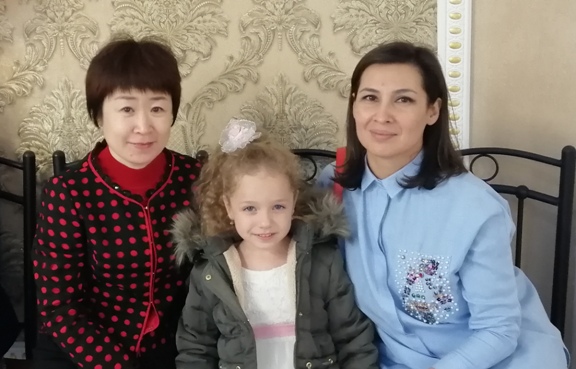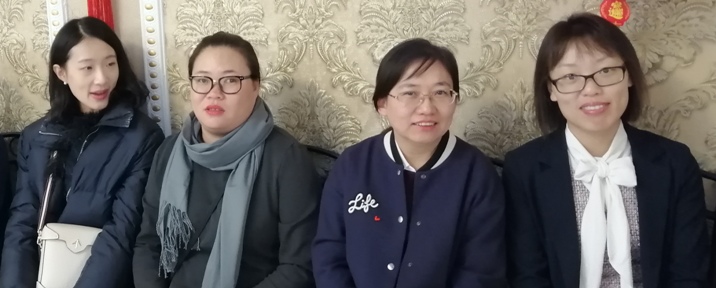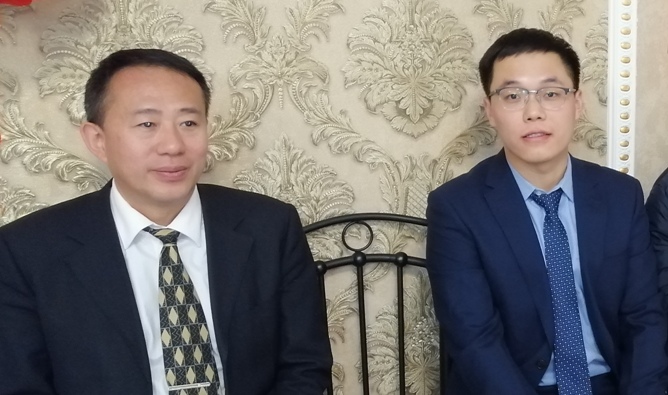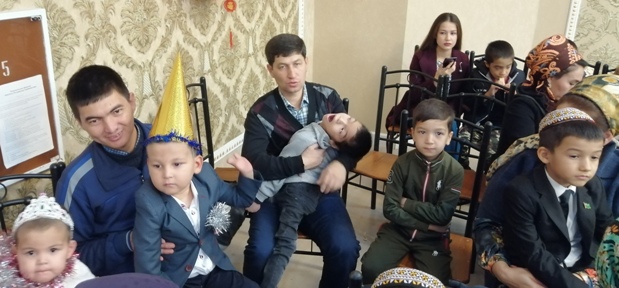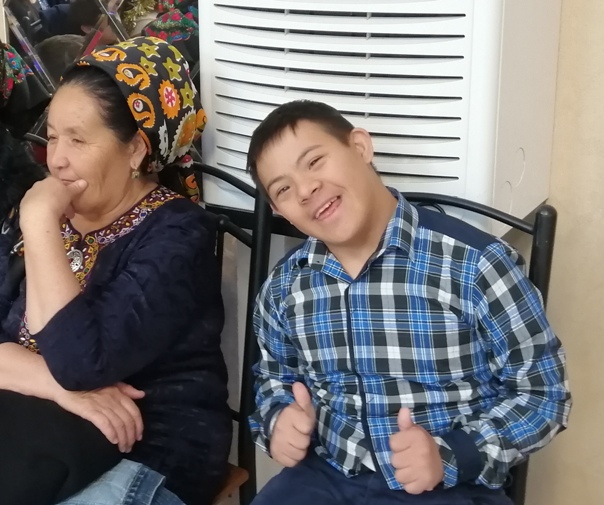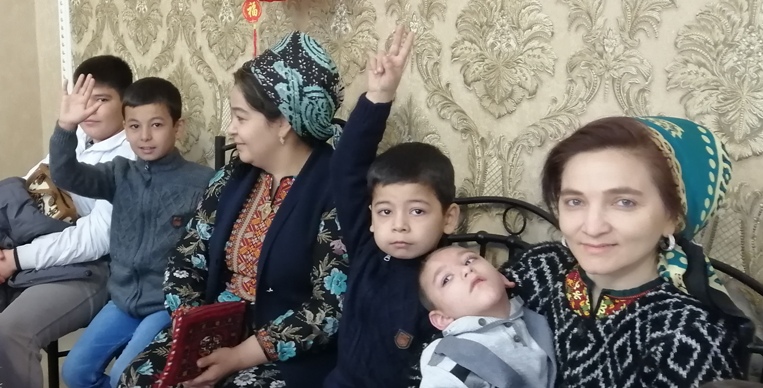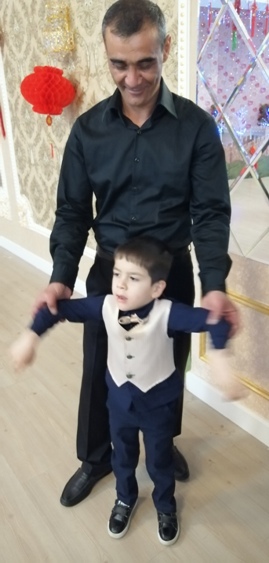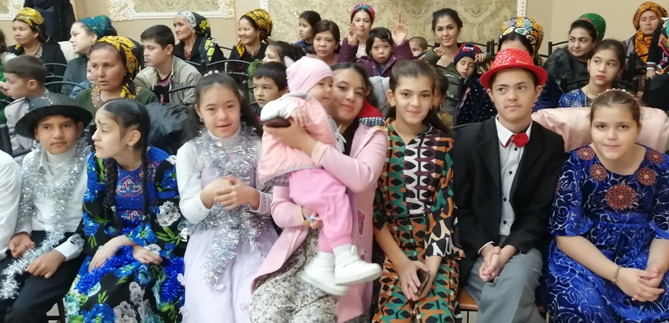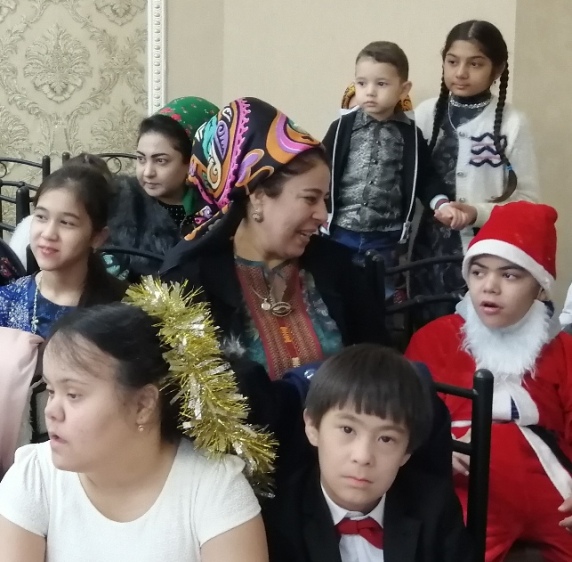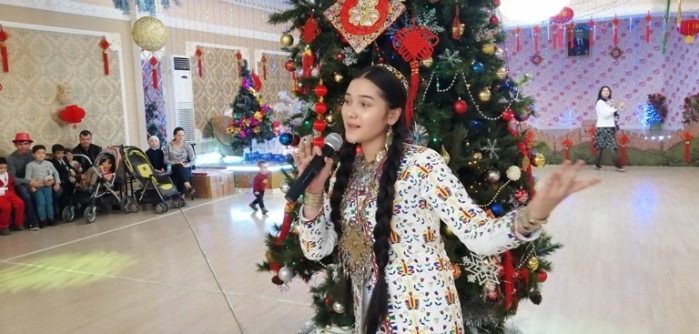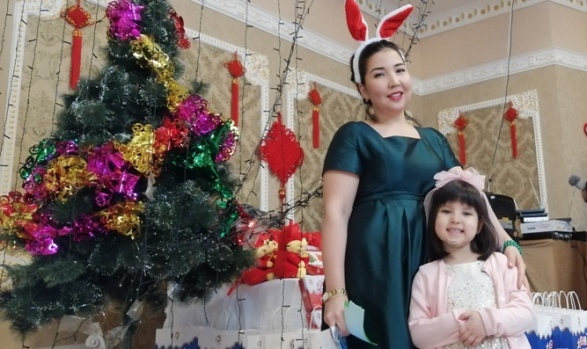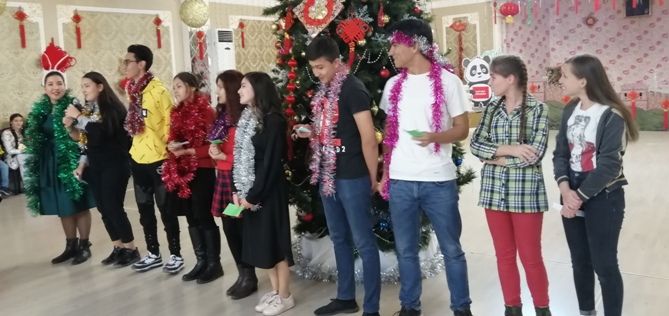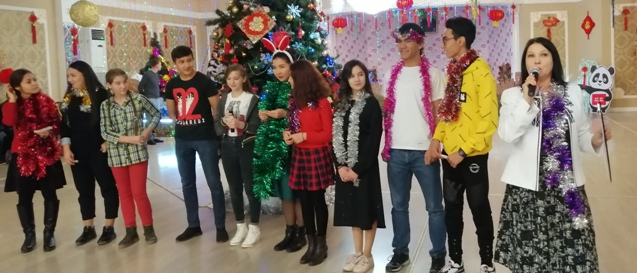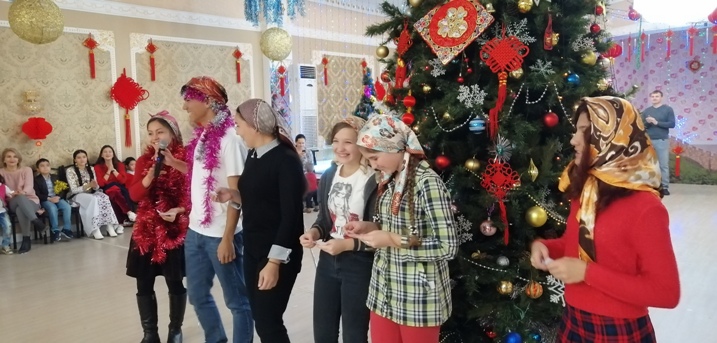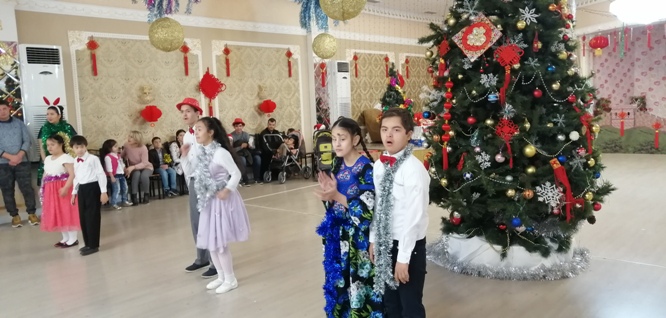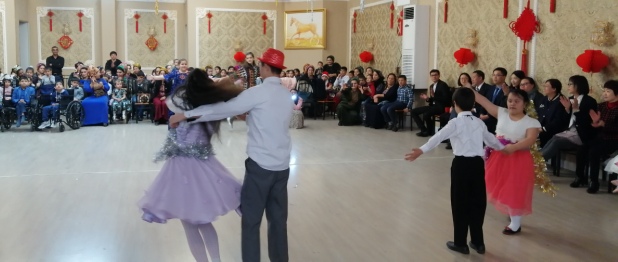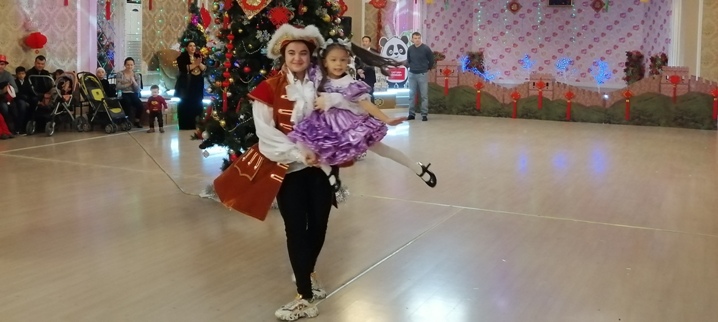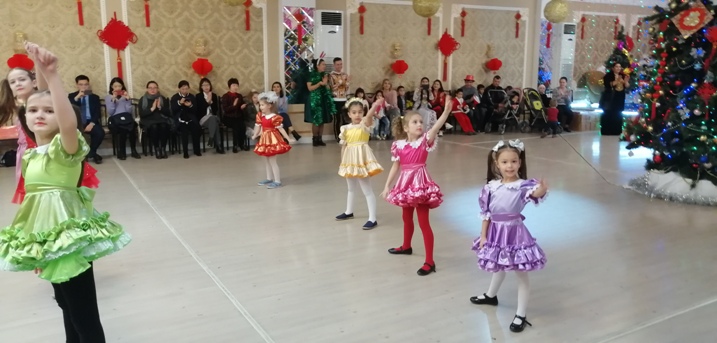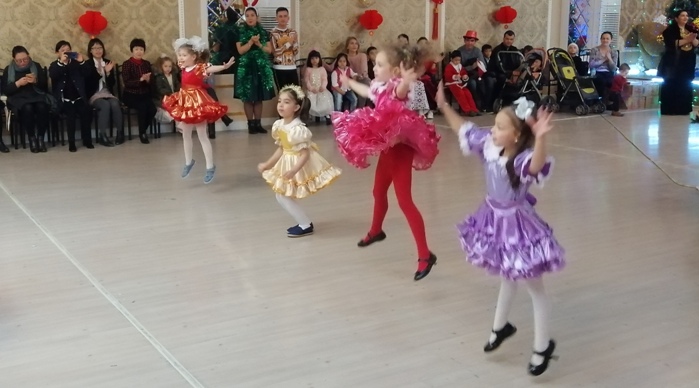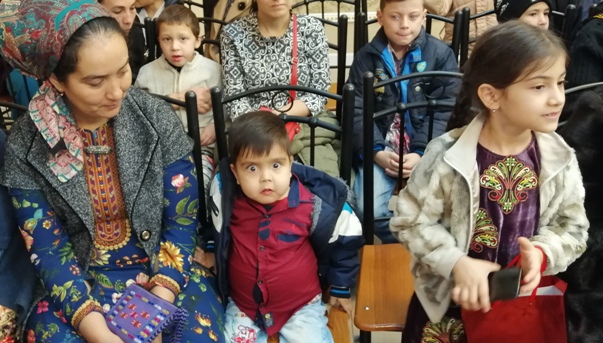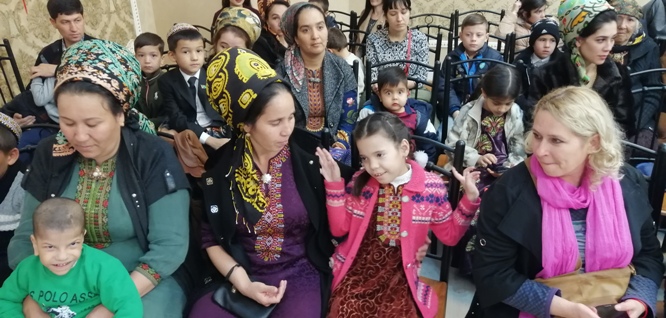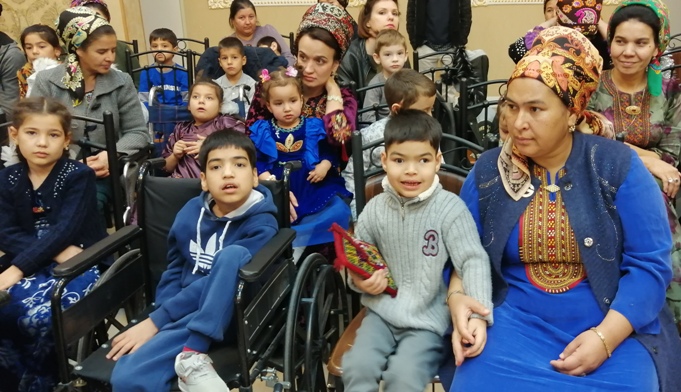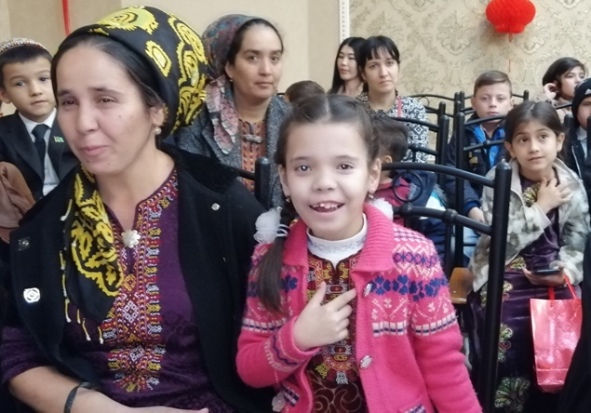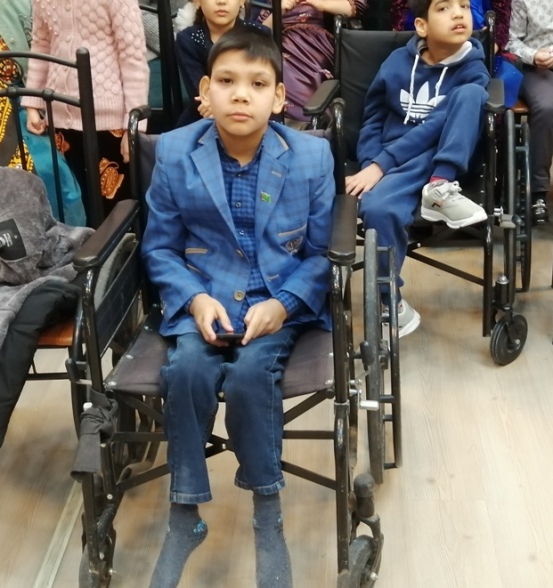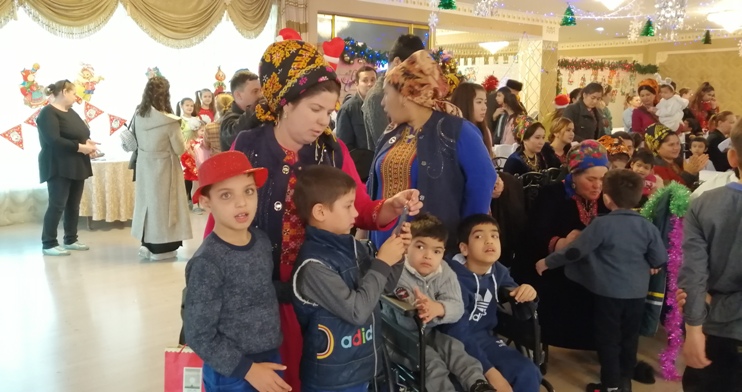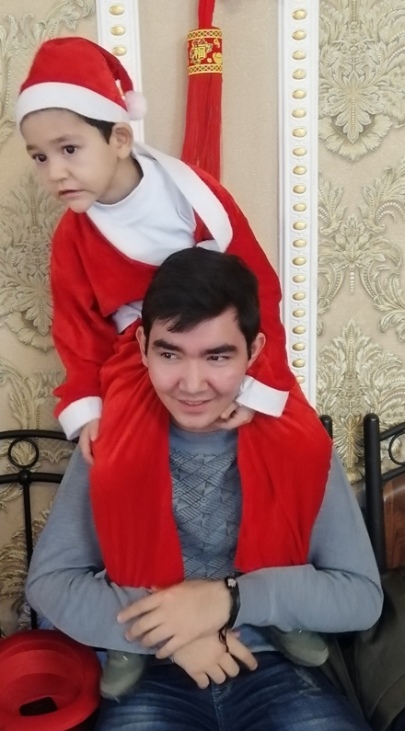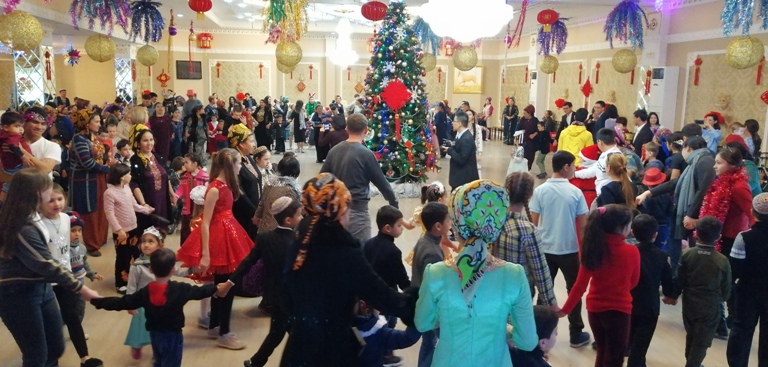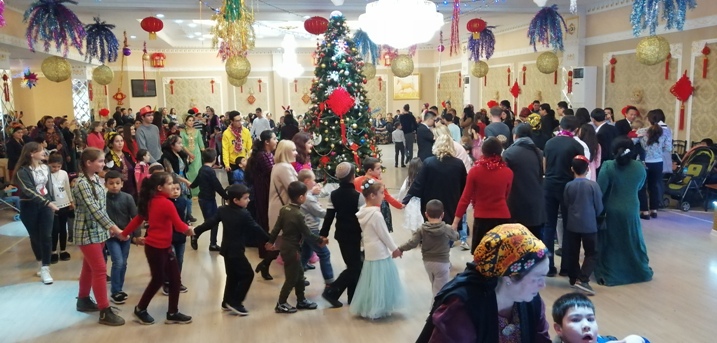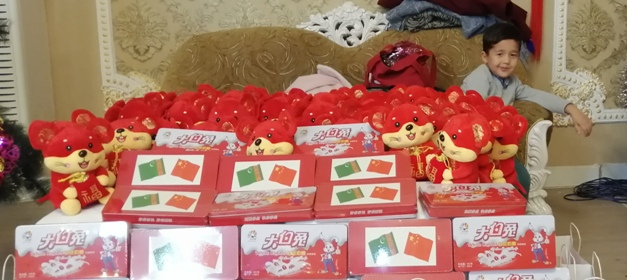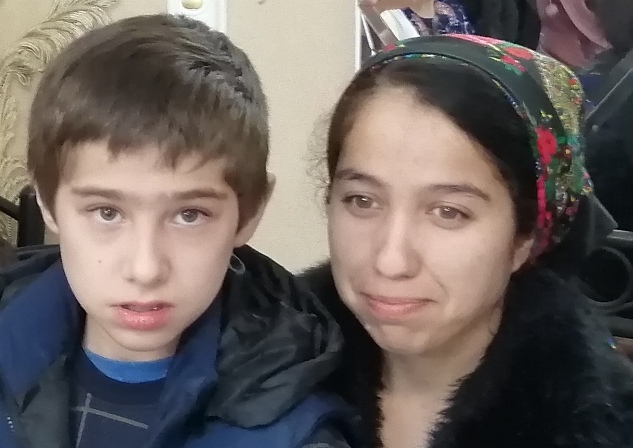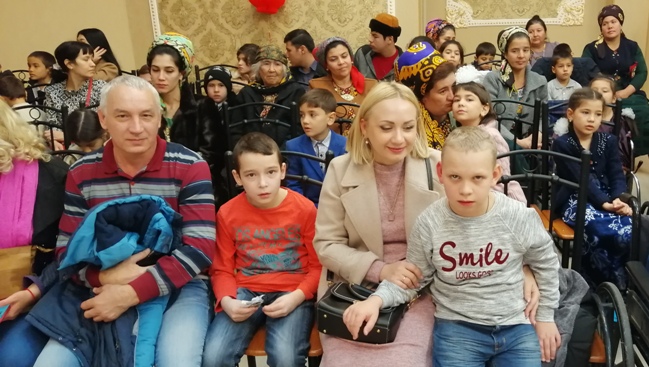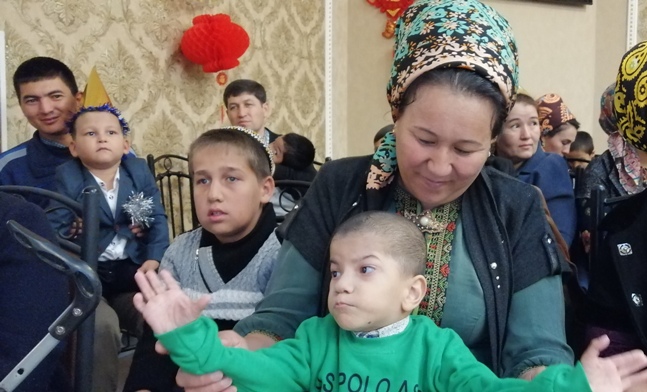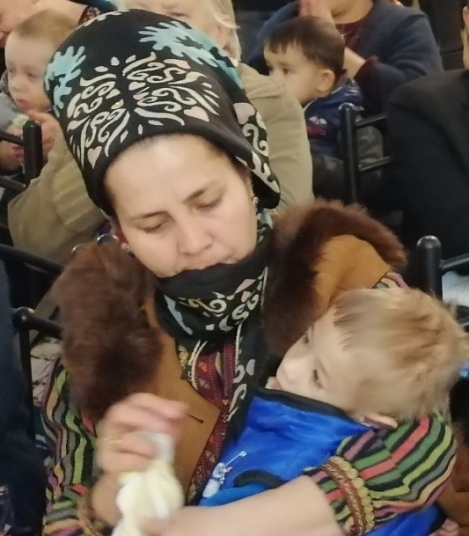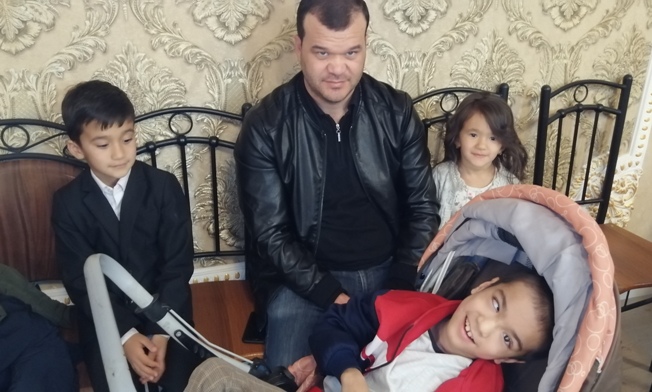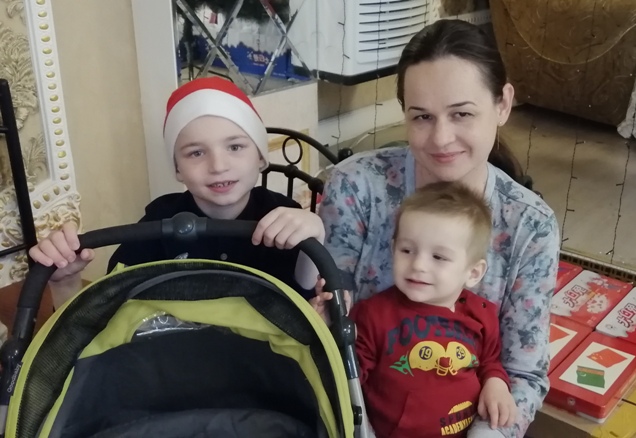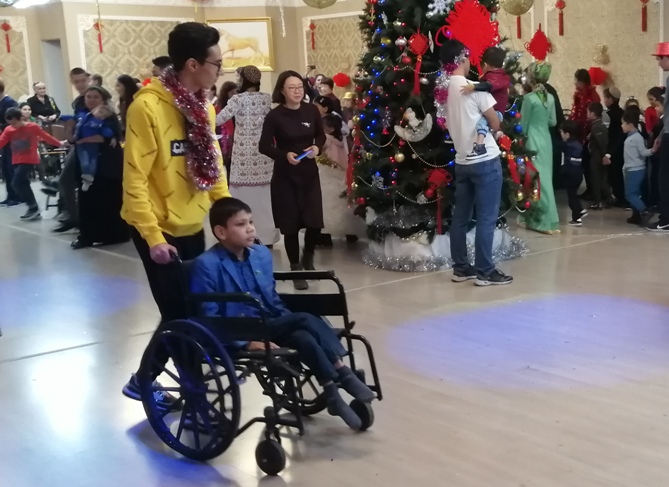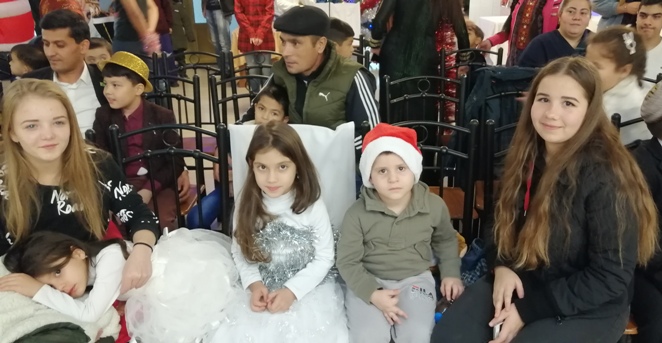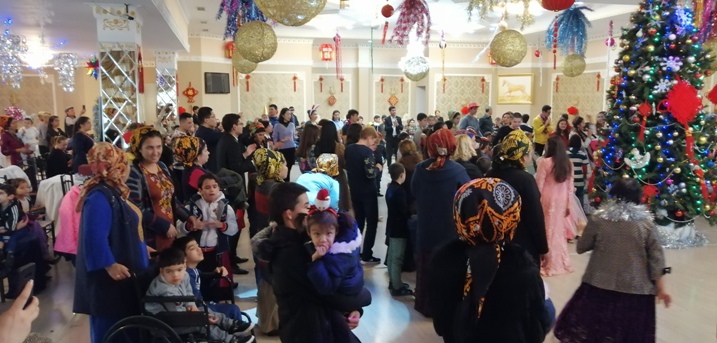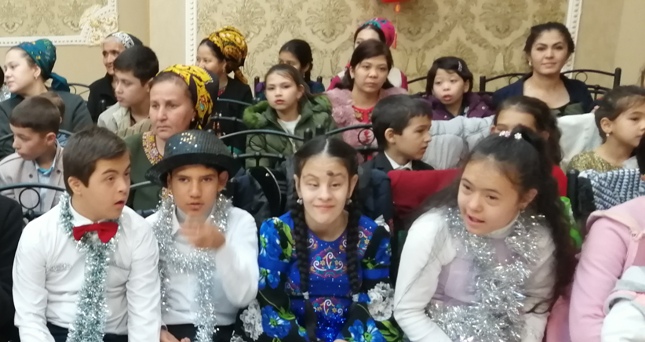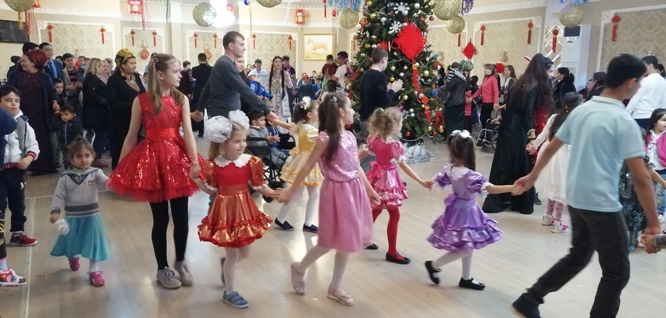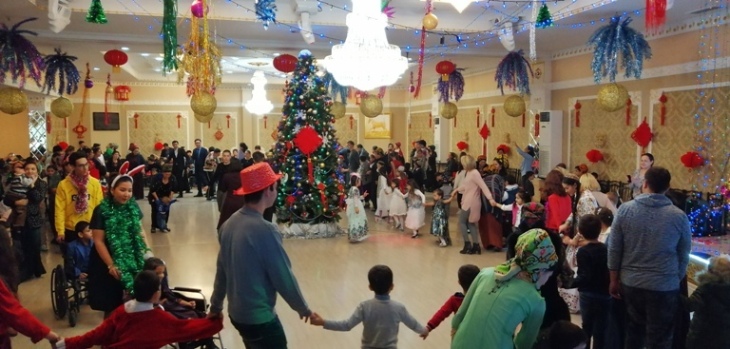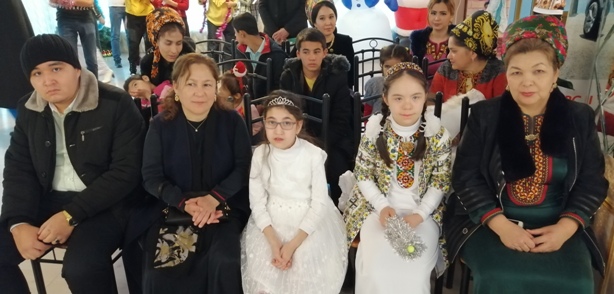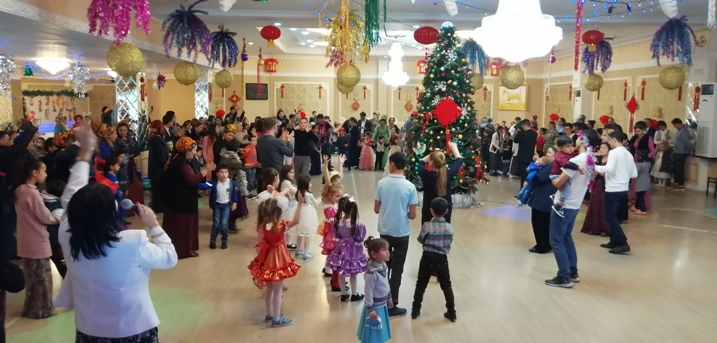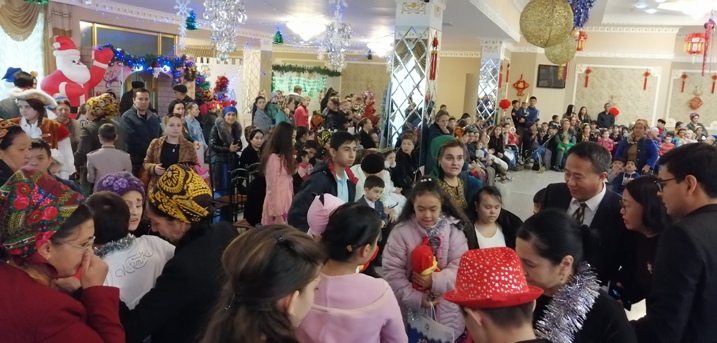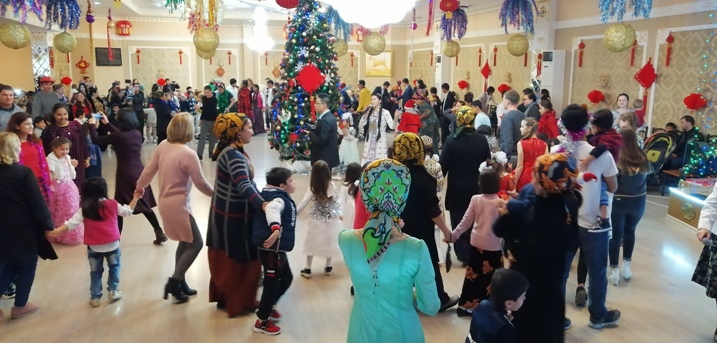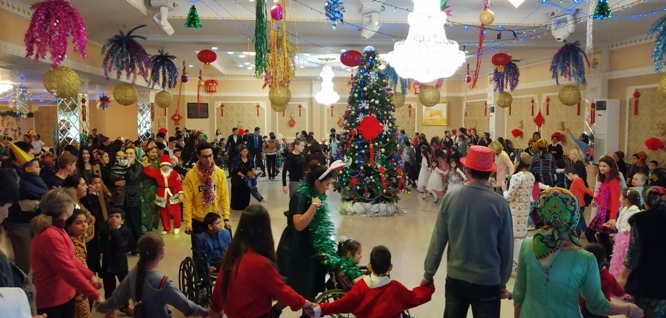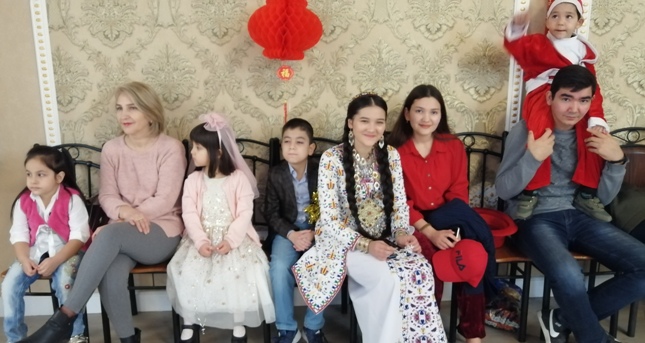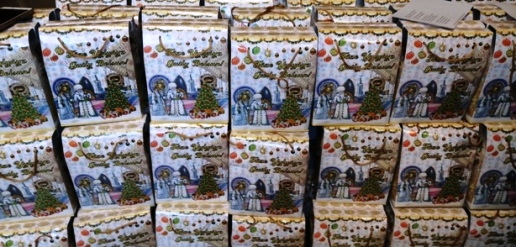nCa News and Commentary
The embassy of China in Turkmenistan, in collaboration with the NGO Yenme, hosted on Wednesday (25 December 2019) a New Year party for the children with disabilities.
A large number of children with disabilities, accompanied by their caregivers attended the event.
The children and the volunteers presented New-Year-themed songs and dances. The Chinese embassy distributed gifts to the children.
Ms. Zhao Li, the Trade and Economic Advisor of the Chinese Embassy in Turkmenistan, thanked Yenme and its head, Ms. Gulya Chorekliyeva for the cooperation in organizing the event.
She said, “Every child is the most valuable gift from heaven; they must be happy and grow up as a worthy citizen of our society. New Year is a magical holiday that all children look forward to. This is a holiday that brings us all hope, happiness and joy.”
“Today we have come together here to celebrate this holiday and share friendship, warmth and love with each other. According to the Chinese lunar calendar, 2020 is the year of the Mouse, which symbolizes wisdom and the will to live. I hope that in the New Year, through courage and wisdom, we will overcome all difficulties on the way forward and tirelessly realize all our dreams so that our life will flourish,” said Zhao Li.
She added, “The territories of states have borders, but love has no borders! Today, the Chinese Embassy has prepared gifts for you: the famous Chinese sweets “White Rabbit” and the “Little Mouse” soft toy, symbolizing the year of “Mouse” in China. These gifts were brought specifically from China, covering thousands of miles. I would like these little gifts to bring you happiness and a feeling of warmth, and allow you to feel the love and deep friendship of the Chinese people. We hope that in the New Year you will look at life more positively, optimistically and courageously, and thereby infect others with your courage, energy and will to live!”
* * *
The embassy of China in Turkmenistan, and the NGO Yenme have a great tradition of cooperation for the welfare of the people with disabilities, the senior citizens, and other vulnerable groups of the society.
Earlier this week they jointly organized a New Year party for the senior citizens which was attended by about 70 pensioners.
Similar events were held in December 2018.
In 2018, the Chinese Embassy donated 90 high-tech comfortable wheelchairs to people with disabilities as a gift. In June 2019, the Chinese embassy and Yenme jointly created the Center for Professional Development for Youth with Disabilities, and the Chinese Embassy donated 12 computers, 4 printers and 9 sewing machines of various types to the Center. Providing the necessary material support to the Center as a gift, the Chinese Embassy facilitated the organization of four training courses on computer development, programming, sewing and mastering sewing skills.
On December 3 of this year, on the International Day of Persons with Disabilities, Ambassador Sun Weidong of China again visited the Center to get acquainted with the progress.
At present, the Chinese Embassy, together with UNICEF and the Ministry of Health and Medical Industry of Turkmenistan, is planning to donate hearing aids to children with hearing problems. The Chinese Embassy and the UNDP Office in Turkmenistan are closely cooperating and have jointly developed relevant documents for a project to promote the employment of persons with disabilities in Turkmenistan, implemented at the expense of the South-South China Cooperation Fund. Thanks to joint efforts, this project was the first project whose agreement was signed by the Competent Authority of China and UNDP.
Within the framework of this project, the Chinese side will provide modern printing and sewing equipment for three enterprises of the Society of the Blind and Deaf of Turkmenistan, help to improve the strategy for managing enterprises and organize training for disabled employees of enterprises in order to improve working conditions, increase professional skills and increase income and level life of the disabled.
* * *
nCa Commentary by Tariq Saeedi
There are some points that must be brought to the spotlight.
The first is the role of Yenme and their team of volunteers in improving the lives of the people with vulnerabilities including the children and adults with disabilities.
It is a huge and complex task. It would not be possible without Gulya Chorekliyeva who is the prime-mover of Yenme. She is an exceptionally talented person with the ability to multitask.
The UN system in Turkmenistan and several of the diplomatic missions are widely cooperating with Yenme, and everyone must be lauded for this noble work. In particular, there should be a system to acknowledge the good work of Gulya and her team.
The volunteers, mostly the students and other young people, are the backbone of Yenme. There should be some tangible ways to encourage them. These volunteers bring life and zest to the events and in doing so they are probably being enlightened about their career options.
A very important suggestion for the policymakers is to treat volunteerism as equivalent to conscription in the army. A system can be designed to treat two years of disciplined and structured volunteerism as equivalent to mandatory conscription.
The second point is the expansion of mobility options and technological support for the disabled. There is the need to look beyond the obvious.
For instance, there is the need to look at the potential of something like exoskeleton and whether such devices can help some of the wheelchair-bound people to gain some ability to walk.
With the advancement in technology, there is also the possibility to adapt several professions to bring them within the reach of the people with limited physical abilities.
This is a joint task for the NGOs like Yenme, the UN system in Turkmenistan, the diplomatic missions, the regional organizations and the multinationals. Since almost every child with disabilities is documented in Turkmenistan, it should be possible to join hands and create individual solutions.
The third and very important point is the need to revisit the whole subject of people with disabilities.
In this, I would like to give some input from my personal experience.
In 1972 – about 47 years ago – we started to document the children with disabilities and to create an education and training centre for them in a particular area in Karachi.
Just to get the basic information about the children with disabilities was a challenge. The parents or guardians shouted at us. They didn’t want to speak to us. They denied that their child was disabled in some way.
Part of it was attributable to the way the society treated the unfortunate group with disabilities back then. It was considered, for some reason, a kind of embarrassment to have a member of the family that was disabled.
The world has come a long way since then. We have coined politically correct – or what we deem politically correct – terms to describe the people with disabilities. We call them differently-abled, we call them special people, we call them alternately-abled, etc.
It is a polite way to speak about the unfortunate among us.
However, in coming up with benign descriptions, we are subconsciously tranquilizing the conscience of the society.
Every time we speak of the people with disabilities, we need to remind ourselves that these are the people who cannot see, or cannot speak, or cannot hear, or cannot walk, or cannot process the information fully, or cannot fully integrate into the society on their own. —– They didn’t get the complete package. They were dealt an incomplete hand. They are suffering without any fault of their own.
This harsh truth should never get buried under the multiple layers of terminology.
Most of the work required to make their life as close to normal as possible must be done inside their homes.
Depending on the nature of their disabilities, a special or portable washroom is one of their main requirements. They need to move without injuring themselves. They should be able to feed themselves. They should be able to use the communication devices on their own. They should have some way of entertainment. They should be able to feed themselves.
Every family cannot afford to alter their home to suit the child with special needs. And, even if they could, they wouldn’t know what to do and how to do it.
This is the task for organizations with knowledge and resources. They need to visit every home to see what can be done, and how can it be done, to ease the life of the people with disabilities and their families.
Speaking of this, there is the need to create a robust and inclusive support system for the primary caregivers for the people with disabilities.
Caring for the disabled is a 24/7 job, with no pause, no break. — Sometimes the enormity of the responsibility can be disheartening. Sometimes the patience may wear thin. Sometimes, anger at their own fate and fate of their loved ones can cloud the judgment. Sometimes, it may all seem futile.
The support system for the caregivers should have material and moral components. There should also be a team of trained volunteers to ease the job of caregivers to some extent. There should be a single gateway to match every problem with the available solutions.
The NGOs such as Yenme, the diplomatic missions, particularly the Chinese embassy, the UN system in Turkmenistan, some other regional and specialized organizations and multinationals are doing a great job. There is the need to pool the resources. /// nCa, 26 December 2019
Here are some pictures from the event of Wednesday:
